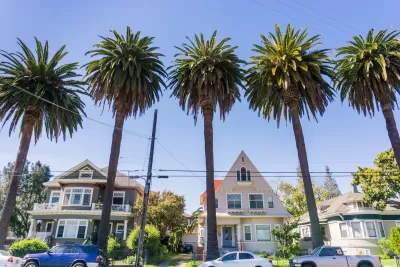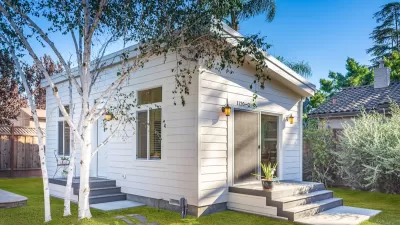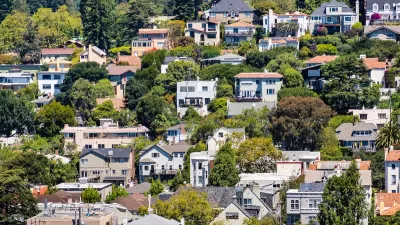A new policy could help boost the supply of smaller, more affordable ‘starter homes’ in the first California city to legalize the sale of ADUs.

The city of San Jose became the first in California to allow the sale of accessory dwelling units (ADUs) as condos, which supporters say will create a new supply of ‘starter homes’ for households looking to become homeowners. In a city where just 6 percent of residential land is zoned for multifamily housing, the policy could have a major impact on San Jose’s housing supply.
As Vicente Vera explains in San Jose Spotlight, the change was made possible by AB 1033, signed by Governor Gavin Newsom last year, which lets municipalities set their own rules on ADU sales.“With more than 1,400 new ADUs built since 2019 and thousands more in development across San Jose, city leaders hope to alleviate the affordable housing crisis with the help of existing homeowners.”
According to Rafael Perez, board president of the affordable housing advocacy nonprofit Casita Coalition, ADU condos typically sell for 40 to 60 percent of the average home price in their area. However, Todd Langton, executive director of homelessness nonprofit Agape Silicon Valley expressed concern that institutional buyers could take advantage of the law and suggested policies to prevent purchases by investors.
According to an article in The Real Deal, “Unlike the controversial Senate Bill 9, which allows homeowners to create two separate lots, a homeowner using AB 1033 must set up a homeowners association for the main house and ADU “condo.” Governing documents would determine how common areas, such as a shared yard, would be maintained and fixed.”
FULL STORY: San Jose ADU law brings back starter homes

Alabama: Trump Terminates Settlements for Black Communities Harmed By Raw Sewage
Trump deemed the landmark civil rights agreement “illegal DEI and environmental justice policy.”

Planetizen Federal Action Tracker
A weekly monitor of how Trump’s orders and actions are impacting planners and planning in America.

The 120 Year Old Tiny Home Villages That Sheltered San Francisco’s Earthquake Refugees
More than a century ago, San Francisco mobilized to house thousands of residents displaced by the 1906 earthquake. Could their strategy offer a model for the present?

Ken Jennings Launches Transit Web Series
The Jeopardy champ wants you to ride public transit.

BLM To Rescind Public Lands Rule
The change will downgrade conservation, once again putting federal land at risk for mining and other extractive uses.

Indy Neighborhood Group Builds Temporary Multi-Use Path
Community members, aided in part by funding from the city, repurposed a vehicle lane to create a protected bike and pedestrian path for the summer season.
Urban Design for Planners 1: Software Tools
This six-course series explores essential urban design concepts using open source software and equips planners with the tools they need to participate fully in the urban design process.
Planning for Universal Design
Learn the tools for implementing Universal Design in planning regulations.
Clanton & Associates, Inc.
Jessamine County Fiscal Court
Institute for Housing and Urban Development Studies (IHS)
City of Grandview
Harvard GSD Executive Education
Toledo-Lucas County Plan Commissions
Salt Lake City
NYU Wagner Graduate School of Public Service





























